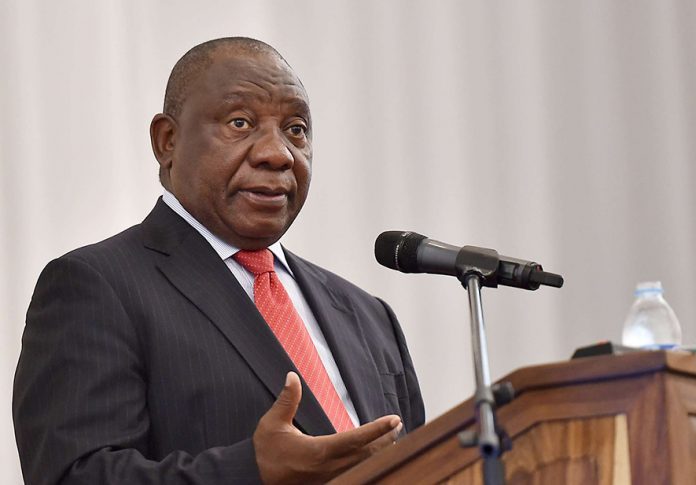The causes of loadshedding are not only structural but they are also operational, according to President Cyril Ramaphosa, who said there were not enough investments in new generation capacity when Eskom needed them years back.
Answering questions by the MPs at the National Assembly on Thursday, Ramaphosa said the situation worsened following the delay in building Eskom’s power stations, Medupi and Kusile, state capture and corruption, and the loss of experienced staff.
“Among the structural challenges is the fact that there has been insufficient investment at the Eskom level in new generation capacity build that was needed two decades ago. This has resulted in a national capacity shortage of between 4 000MW and 6 000MW,” said the president.
“As a result of these challenges, power stations were run very hard to their maximum capacity with poor reliability, maintenance and neglect of mid-life refurbishment.
“We need skilled people … with great knowledge and expertise. We are focusing on improving skills. We are focusing on bringing the skills in-house. There were many people who were very experienced at Eskom who left years ago, and we are seeking to bring those back.”
Ramaphosa said loadshedding is a problem that affects all South Africans, adding that it would be inappropriate to only focus on the economic part of the problem.
“Loadshedding is a challenge and a problem to all of us, collectively as South Africans, and I would say that it isn’t correct that we only focus on the economic side or businesses.
“We do also focus on the hardships that are imposed on the people of South Africa. And to this end, we’ve taken a number of measures and steps to address the challenges for instance, that are faced by our hospitals or health centres.”
Ramaphosa assured the MPs that the government continues to address the loadshedding issue and is hopeful as more effective measures are implemented.
“We do focus on the core of our country, even during difficult periods of loadshedding, and you will all know the extent to which government has gone to ensure that those who are indigent are able to get some measure of assistance from the state.”
Like Deputy President David Mabuza, Ramaphosa thinks Eskom boss Andre de Ruyter’s fate is only in the hands of the newly appointed board.
Ramaphosa said the board will soon undertake a full assessment of the effectiveness of managers and operators at Eskom.
“The group CEO reports to the Eskom board, which conducts performance reviews against agreed targets. The new Eskom board was appointed on 1 October and will be given the space to assess what needs to be done to improve efficiency of the existing plant and effectiveness of the management and operators at all levels.
“The new board has the skills, experience and the expertise to undertake a thorough assessment of current executive leadership at Eskom and take whatever steps they consider necessary to address areas of weakness, and they must be given the space to do so,” he said.
Ramaphosa also urged the MPs to allow the board to fulfil its mandate without disturbance, as the state-owned entity has undergone many leadership changes at the executive level.
“There is no state entity that has had as many CEOs as Eskom. We need to have a proper assessment of everybody at Eskom. We also need to have an assessment of our various power stations. That process is under way.
“I would like us to allow the board to embark on this process and they will be able to brief [government] on what their assessment is, and it is then that they will propose how best the matter should be handled.
“Eskom has gone through enormous challenges and difficulties. Let us give them the support they need so that they can do their work. Where they fail, clearly action does need to be taken, but that is now a board matter.”
Ramaphosa, who was subjected to six questions of national importance, was also grilled on the issue of black economic empowerment policies which have been widely contested.
Notwithstanding the implications of corruption and racial concerns, Ramaphosa maintains that the policy, which was put in place in 1994 to facilitate broader economic participation by black people post the oppressive apartheid regime, is about inclusivity that should be afforded all South Africans.
He was asked why he is clinging on the “failed policy”, which according to the DA leader John Steenhuisen only benefits the ANC. Ramaphosa was also asked about the recent scandal where Hangwani Morgan Maumela is said to have scored about R381-million in government contracts.
It is alleged that Maumela is the president’s relative, however, he has disputed and dismissed the claims. Ramaphosa said he does not “know the gentleman”.
Also read: Ramaphosa to answer questions on Eskom and BEE policy
Follow @SundayWorldZA on Twitter and @sundayworldza on Instagram, or like our Facebook Page, Sunday World, by clicking here for the latest breaking news in South Africa. To Subscribe to Sunday World, click here.
Sunday World



